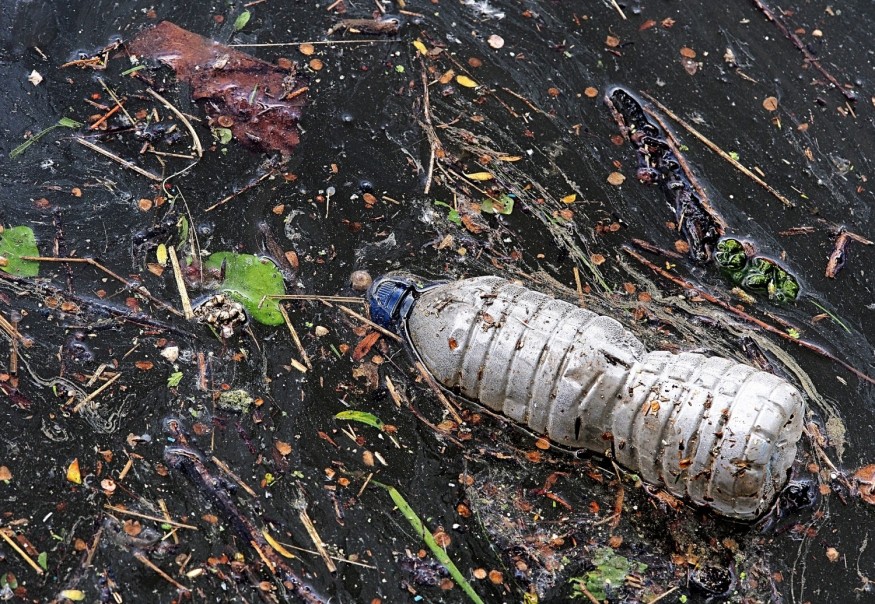
Filipinos throw away a daunting figure of more than 17.5 billion of plastics every year, basically of which flushed away in the ocean.
According to World Bank researchers, the countries worldwide generate at least 3.5 million tons of plastic and other solid waste a day, ten times the amount compared to the previous century.
Thousands of marine species - including turtles, whales, birds, and seals - die from plastic wastes each year as they frequently mistake them for food.
ALSO READ : Here's Why Ocean Animals Keep Eating Plastic
The Philippines rank as the world's third-largest source of plastic leaking into the sea after China and Indonesia, according to a 2015 report on plastic pollution of Ocean Conservancy and McKinsey Center for Business and Environment. The Southeast Asian country has the highest amount of unmanaged plastic waste among countries in the region.
The report said that approximately 79 percent of branded plastic residual wastes are from meals packaging, followed by family and personal care products with 12 and eight percent, respectively.
"Plastic waste inputs from land into the ocean" shows that the Philippines wastes 6,237,653 kg (6875.84 tons) of plastic in step with day, of which 81% is mismanaged.
Where it comes from
The Global Alliance for Incinerator Alternatives (GAIA) reported in 2019 that Filipinos produces more than 163 million plastic sachet packets, 48 million shopping luggage, and 45 million thin-film bags every day. These figures were based on 21 waste tests carried out in six cities and seven municipalities in the Philippines.
"Year's well worth of sachet use in the Philippines can cowl the entire Metro Manila one foot deep in plastic waste," GAIA stated in its file.
Froilan Grate, executive director of GAIA Philippines, told South China Morning Post that an absence of garbage collection services in the country's secondary cities and smaller islands is mostly blamed for the overwhelming amount of marine plastic coming from the Philippines.
"[Most] secondary cities [in the Philippines] do not have a waste collection at all," he explains, adding that segregation and recycling efforts in the country are limited, regardless of the legislation.
As nearby-level plastic bag bans have been positioned in place and rigorously enforced, utilization has dropped dramatically, the report stated. It advised the authorities to "institute a comprehensive countrywide plastic bag ban that promotes reusable baggage."
The state officials passed Republic Act No. 9003 - also known as the Ecological Solid Waste Management Act of 2000 - in an attempt to rework the Philippines right into a zero-waste country, where local governments are tasked with the solid waste control in their respective areas.
Von Hernandez, an environmental activist in the Philippines' and the global coordinator of the Break Free From Plastic movement, told SCMP that implementing the law has been a challenge because funds allocated for waste disposal are vulnerable to corruption, and local governments lack the political will.
"RA 9003 mandates recycling, segregating and the closure of dumpsites; however, you see so most of them near Manila Bay and Laguna de Bay," he pointed out.
What can be done?
Former Philippine President Benigno S. Aquino III signed Proclamation No. 760 in 2015 to formally put forward the month of January as a Zero-Waste Month.
"Zero waste" advocacy promotes planning and handling commodities and processes away from the volume and disposal waste, conserve and recover all resources, no longer indiscriminately dispose or burn them."
GAIA's recommendations underscore improving and expanding government regulations to restrict plastic usage nationwide, as well as on strengthening their implementation.
"The strict implementation of plastic bag regulations produces dramatically significant results in lowering plastic bag use," wrote GAIA as one of its key findings in the study. However, the organization said the existence of a plastic bag regulation in a city or municipality would not automatically equate to lower plastic bag use.
GAIA also urged formulating regulations banning single-use plastic products such as sachets and utensils similar to the plastic bag ban that's already in effect in several areas. The organization recommended that government units "put in place policies to mandate, and incentives to encourage, corporations and business establishments to redesign product packaging and delivery systems."
© 2025 NatureWorldNews.com All rights reserved. Do not reproduce without permission.





